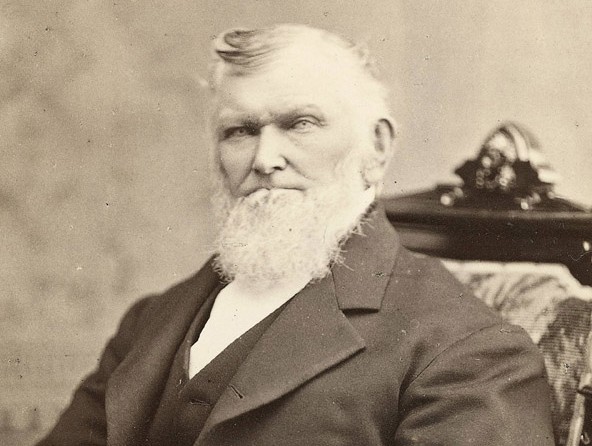Question
Gramps,
I have a friend who feels that people of all religions want their religion to be true so badly that they convince themselves that their religion is true. He feels that any spirit or power felt by an individual is caused by a strong internal desire to feel something to solidify their belief. What is your opinion on this subject? What is a good way to refute his argument? Thanks so much! You’re the man.
Austin
Answer
Austin,
This concept “convincing themselves” is a statement common among individuals who would claim to be agnostic or atheist, and I would agree with them to a point. As human beings we do have the ability to excite our own mental state resulting in a desired affect, i.e. crying or get really excited (we see this among humans in different scenarios).
We are also taught that in order to know something, or in order to receive a testimony we must first “desire” to know truth and then experiment upon the word of God (Alma 32:21-28).
Although I may agree with your friend, what I do not agree with is your friend’s sweeping generalization of “all religions,” or all “convince themselves.” Desire is necessary for any knowledge, especially spiritual knowledge. Without a strong internal desire our life would be very different as human beings. Desire is necessary for progression. Nephi explains his personal desire to know if the words of his father were true as shared in 1 Nephi 10:17-19.
When I am introduced to this question, this objection, I will often seek to learn more about what they mean regarding “strong internal desires.” I would ask for examples of what he/she interprets as a falsified witness through a person’s personal desire to know something to be true. Once this is discovered I would then share the First Vision. The appearance of God the Father and God the Son would not have been some random experience. This experience is either true or false. I would then share other examples of how the Holy Ghost has influenced the lives of others, and how it has blessed their lives. As an example I would share this story as given by Wilford Woodruff:
“I drove my carriage one evening into the yard of Brother Williams [a local member of the Church]. Brother Orson Hyde [of the Quorum of the Twelve] drove a wagon by the side of mine. I had my wife and children in the carriage. After I turned out my team and had my supper, I went to bed in the carriage. I had not been there but a few minutes when the Spirit said to me, ‘Get up and move that carriage.’ I told my wife I had to get up and move the carriage. She said, ‘What for?’ I said, ‘I don’t know.’ That is all she asked me on such occasions; when I told her I did not know, that was enough. I got up and moved my carriage. … I then looked around me and went to bed. The same Spirit said, ‘Go and move your animals from that oak tree.’ … I went and moved my horses and put them in a little hickory grove. I again went to bed.
“In thirty minutes a whirlwind came up and broke that oak tree off within two feet from the ground. It swept over three or four fences and fell square in that dooryard, near Brother Orson Hyde’s wagon, and right where mine had stood. What would have been the consequences if I had not listened to that Spirit? Why, myself and wife and children doubtless would have been killed. That was the still, small voice to me—no earthquake, no thunder, no lightning; but the still, small voice of the Spirit of God. It saved my life. It was the spirit of revelation to me.”
I would then ask, by what “strong internal desire” did Wilford Woodruff convince himself to move his wagon in the middle of the night? I would then bare testimony that by the same spirit Wilford Woodruff’s life and family was spared is by the same spirit God witnesses to His children the truth of His gospel. However, it is more likely this witness will not come until an individual has a strong desire to know and then act upon the witness received. In essence, there are times, due to our desires, that we may convince ourselves that something is true that is in reality false. This, however, doesn’t prove, that “all” witnesses would be false. This again would be a sweeping generalization, which can be more easily refuted by speaking with people who didn’t have a desire to know truth, actually persecuted it, and then received a witness that caused them to join the Church (Saul who became Paul is a great example of this from our scriptures). We also have modern examples of people who persecuted the Church, had no desire to join, and received an experience that changed their minds.
Gramps







